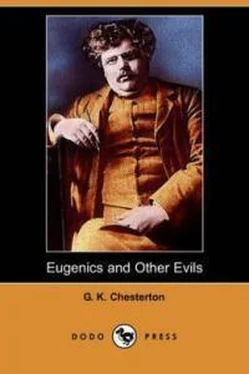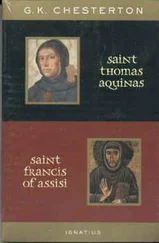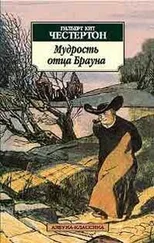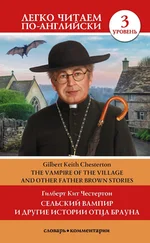It is wrong, quite apart from the suggestion that an expert on health cannot be chosen. It is wrong because an expert on health cannot exist. An expert on disease can exist, for the very reason we have already considered in the case of madness, because experts can only arise out of exceptional things. A parallel with any of the other learned professions will make the point plain. If I am prosecuted for trespass, I will ask my solicitor which of the local lanes I am forbidden to walk in. But if my solicitor, having gained my case, were so elated that he insisted on settling what lanes I should walk in; if he asked me to let him map out all my country walks, because he was the perambulatory adviser of the community—then that solicitor would solicit in vain. If he will insist on walking behind me through woodland ways, pointing out with his walking–stick likely avenues and attractive short–cuts, I shall turn on him with passion, saying: "Sir, I pay you to know one particular puzzle in Latin and Norman–French, which they call the law of England; and you do know the law of England. I have never had any earthly reason to suppose that you know England. If you did, you would leave a man alone when he was looking at it." As are the limits of the lawyer's special knowledge about walking, so are the limits of the doctor's. If I fall over the stump of a tree and break my leg, as is likely enough, I shall say to the lawyer, "Please go and fetch the doctor." I shall do it because the doctor really has a larger knowledge of a narrower area. There are only a certain number of ways in which a leg can be broken; I know none of them, and he knows all of them. There is such a thing as being a specialist in broken legs. There is no such thing as being a specialist in legs. When unbroken, legs are a matter of taste. If the doctor has really mended my leg, he may merit a colossal equestrian statue on the top of an eternal tower of brass. But if the doctor has really mended my leg he has no more rights over it. He must not come and teach me how to walk; because he and I learnt that in the same school, the nursery. And there is no more abstract likelihood of the doctor walking more elegantly than I do than there is of the barber or the bishop or the burglar walking more elegantly than I do. There cannot be a general specialist; the specialist can have no kind of authority, unless he has avowedly limited his range. There cannot be such a thing as the health adviser of the community, because there cannot be such a thing as one who specialises in the universe.
Thus when Dr. Saleeby says that a young man about to be married should be obliged to produce his health–book as he does his bank–book, the expression is neat; but it does not convey the real respects in which the two things agree, and in which they differ. To begin with, of course, there is a great deal too much of the bank–book for the sanity of our commonwealth; and it is highly probable that the health–book, as conducted in modern conditions, would rapidly become as timid, as snobbish, and as sterile as the money side of marriage has become. In the moral atmosphere of modernity the poor and the honest would probably get as much the worst of it if we fought with health–books as they do when we fight with bank–books. But that is a more general matter; the real point is in the difference between the two. The difference is in this vital fact: that a monied man generally thinks about money, whereas a healthy man does not think about health. If the strong young man cannot produce his health–book, it is for the perfectly simple reason that he has not got one. He can mention some extraordinary malady he has; but every man of honour is expected to do that now, whatever may be the decision that follows on the knowledge.
Health is simply Nature, and no naturalist ought to have the impudence to understand it. Health, one may say, is God; and no agnostic has any right to claim His acquaintance. For God must mean, among other things, that mystical and multitudinous balance of all things, by which they are at least able to stand up straight and endure; and any scientist who pretends to have exhausted this subject of ultimate sanity, I will call the lowest of religious fanatics. I will allow him to understand the madman, for the madman is an exception. But if he says he understands the sane man, then he says he has the secret of the Creator. For whenever you and I feel fully sane, we are quite incapable of naming the elements that make up that mysterious simplicity. We can no more analyse such peace in the soul than we can conceive in our heads the whole enormous and dizzy equilibrium by which, out of suns roaring like infernos and heavens toppling like precipices, He has hanged the world upon nothing.
We conclude, therefore, that unless Eugenic activity be restricted to monstrous things like mania, there is no constituted or constitutable authority that can really over–rule men in a matter in which they are so largely on a level. In the matter of fundamental human rights, nothing can be above Man, except God. An institution claiming to come from God might have such authority; but this is the last claim the Eugenists are likely to make. One caste or one profession seeking to rule men in such matters is like a man's right eye claiming to rule him, or his left leg to run away with him. It is madness. We now pass on to consider whether there is really anything in the way of Eugenics to be done, with such cheerfulness as we may possess after discovering that there is nobody to do it.
Chapter VI
The Unanswered Challenge
Dr. Saleeby did me the honour of referring to me in one of his addresses on this subject, and said that even I cannot produce any but a feeble–minded child from a feeble–minded ancestry. To which I reply, first of all, that he cannot produce a feeble–minded child. The whole point of our contention is that this phrase conveys nothing fixed and outside opinion. There is such a thing as mania, which has always been segregated; there is such a thing as idiotcy, which has always been segregated; but feeble–mindedness is a new phrase under which you might segregate anybody. It is essential that this fundamental fallacy in the use of statistics should be got somehow into the modern mind. Such people must be made to see the point, which is surely plain enough, that it is useless to have exact figures if they are exact figures about an inexact phrase. If I say, "There are five fools in Acton," it is surely quite clear that, though no mathematician can make five the same as four or six, that will not stop you or anyone else from finding a few more fools in Acton. Now weak–mindedness, like folly, is a term divided from madness in this vital manner—that in one sense it applies to all men, in another to most men, in another to very many men, and so on. It is as if Dr. Saleeby were to say, "Vanity, I find, is undoubtedly hereditary. Here is Mrs. Jones, who was very sensitive about her sonnets being criticised, and I found her little daughter in a new frock looking in the glass. The experiment is conclusive, the demonstration is complete; there in the first generation is the artistic temperament—that is vanity; and there in the second generation is dress—and that is vanity." We should answer, "My friend, all is vanity, vanity and vexation of spirit—especially when one has to listen to logic of your favourite kind. Obviously all human beings must value themselves; and obviously there is in all such valuation an element of weakness, since it is not the valuation of eternal justice. What is the use of your finding by experiment in some people a thing we know by reason must be in all of them?"
Here it will be as well to pause a moment and avert one possible misunderstanding. I do not mean that you and I cannot and do not practically see and personally remark on this or that eccentric or intermediate type, for which the word "feeble–minded" might be a very convenient word, and might correspond to a genuine though indefinable fact of experience. In the same way we might speak, and do speak, of such and such a person being "mad with vanity" without wanting two keepers to walk in and take the person off. But I ask the reader to remember always that I am talking of words, not as they are used in talk or novels, but as they will be used, and have been used, in warrants and certificates, and Acts of Parliament. The distinction between the two is perfectly clear and practical. The difference is that a novelist or a talker can be trusted to try and hit the mark; it is all to his glory that the cap should fit, that the type should be recognised; that he should, in a literary sense, hang the right man. But it is by no means always to the interests of governments or officials to hang the right man. The fact that they often do stretch words in order to cover cases is the whole foundation of having any fixed laws or free institutions at all. My point is not that I have never met anyone whom I should call feeble–minded, rather than mad or imbecile. My point is that if I want to dispossess a nephew, oust a rival, silence a blackmailer, or get rid of an importunate widow, there is nothing in logic to prevent my calling them feeble–minded too. And the vaguer the charge is the less they will be able to disprove it.
Читать дальше








